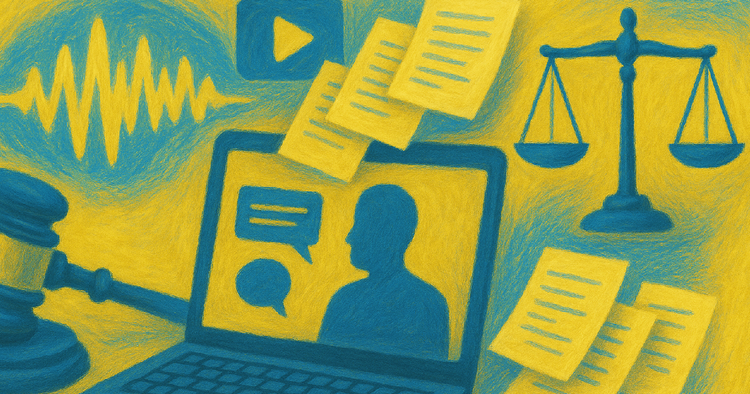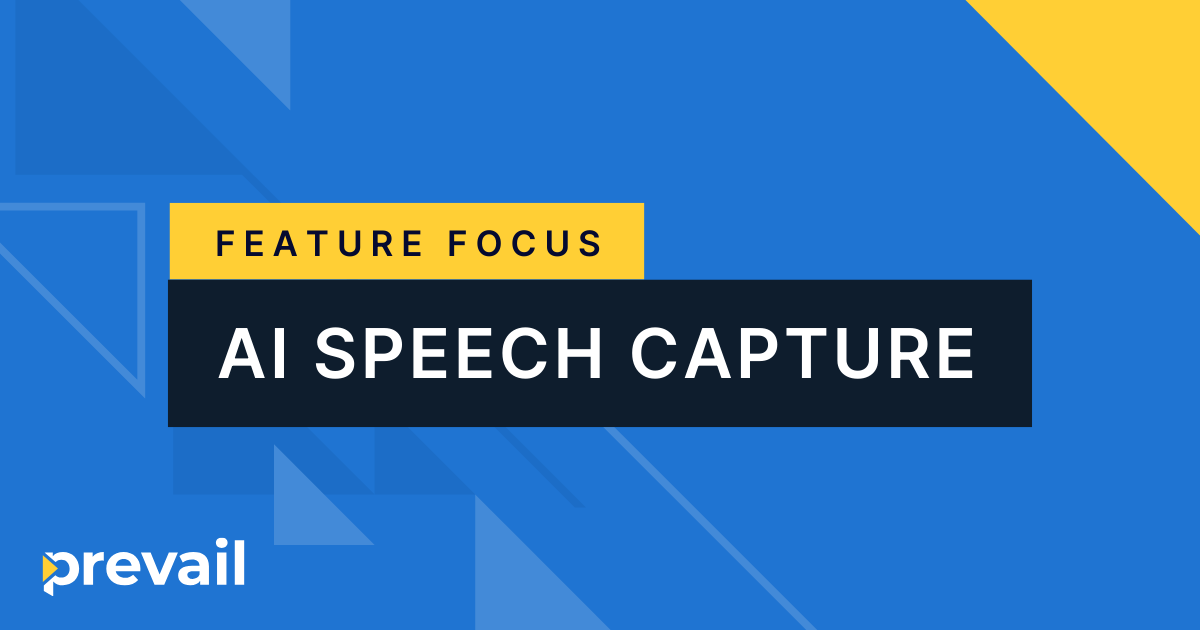AI in Law: How Prevail Balances Technology and Ethics

In the ever-evolving landscape of the legal industry, the conversation about artificial intelligence (AI) has been steadily gaining momentum. Recent advancements in AI, particularly in the realm of generative AI, have spurred both excitement and apprehension among legal professionals.
While AI tools like ChatGPT initially captured the spotlight, the legal industry is now turning its attention to more mature, legal-specific AI tools. Prevail is leading the way in harnessing AI responsibly to address the unique needs and concerns of the legal industry.
The Pitfalls of Public Tools like ChatGPT
Public AI tools like ChatGPT emerged on the legal scene with great promise and quickly garnered attention. However, their shortcomings were quickly made evident by a slew of headlines in both the legal and technology sectors; from fabricating nonexistent case records to robot lawyer schemes, public AI tools were quickly maligned by the legal industry.
Many of these publicized pitfalls stem from lack of human supervision. Despite the fact that public AI tools such as ChatGPT come with a disclaimer that they “may produce inaccurate information about people, places, or facts”, many users—including attorneys—blindly distribute content directly from generative AI tools without confirming accuracy.
Ethical issues also arise when public large language models (LLMs) are trained using potentially confidential content, which it may then republish without the consent or knowledge of the parties involved. Legal professionals have an obligation to uphold client privacy, and so should be mindful of the data security and privacy terms of any tool they choose to use.
These challenges underscore the importance of responsible AI usage in the legal sector. Public AI tools, by their nature, lack the guardrails needed to ensure that AI operates within the ethical and legal boundaries of the industry. The legal profession requires AI solutions that can reliably protect sensitive data and uphold the highest standards of professionalism.
Legal Industry's Shift Towards Domain-Specific AI Tools
The legal industry's shift towards domain-specific AI tools has been a significant development. Recognizing the limitations and challenges posed by public AI tools, legal tech providers are now embracing advanced AI models such as GPT-4. These models offer a level of maturity and reliability that is essential for legal tasks.
Leading players in the legal tech space, including LexisNexis and Thomson Reuters, have announced their intention to incorporate advanced generative AI models into their offerings. This shift reflects the industry's acknowledgment that AI tools should align with the unique demands of the legal profession.
Prevail Marries AI Automation with Human Expertise
Prevail recognizes that the legal industry demands a different approach to AI. Instead of relying solely on public AI tools, Prevail has developed a unique approach that combines the strengths of LLMs with the expertise of qualified human staff. The key differentiator is that Prevail employs seasoned court reporters to review and certify transcripts rather than relying on AI to manage the entire process. This combined approach also expedites the transcription and certification process and allows Prevail to deliver certified transcripts within days, not weeks.
In addition to this increased efficiency, Prevail's unique approach also minimizes the risks associated with AI by providing the necessary guardrails to protect sensitive information, maintain confidentiality, and uphold the integrity of legal proceedings. Prevail's commitment to ethical AI adoption goes beyond mere lip service. By combining the power of AI with human oversight, Prevail ensures that AI processes are aligned with ethical standards and the highest levels of professionalism.
The Future of AI in the Legal Industry
As AI's impact on the legal industry becomes increasingly evident, it is clear that the adoption of AI is not a matter of if, but when. The legal profession cannot afford to ignore the transformative potential of AI. However, this transformation must be guided by ethical considerations and industry-specific expertise.
The legal industry's future will be shaped by the responsible and ethical use of AI, particularly legal-specific AI tools that incorporate mature AI models. While public AI tools like ChatGPT have had their share of controversies, the legal sector can move forward by focusing on AI solutions that align with the industry's unique needs and concerns.
As the legal industry continues to evolve, Prevail's commitment to legal-specific AI tools paves the way for a future where AI seamlessly integrates with the practice of law. The path forward involves embracing the transformative potential of AI while safeguarding the principles of ethics, professionalism, and responsible AI usage that define the legal profession. Prevail is not just leading the way; it is setting the standard for responsible AI adoption in the legal industry.




